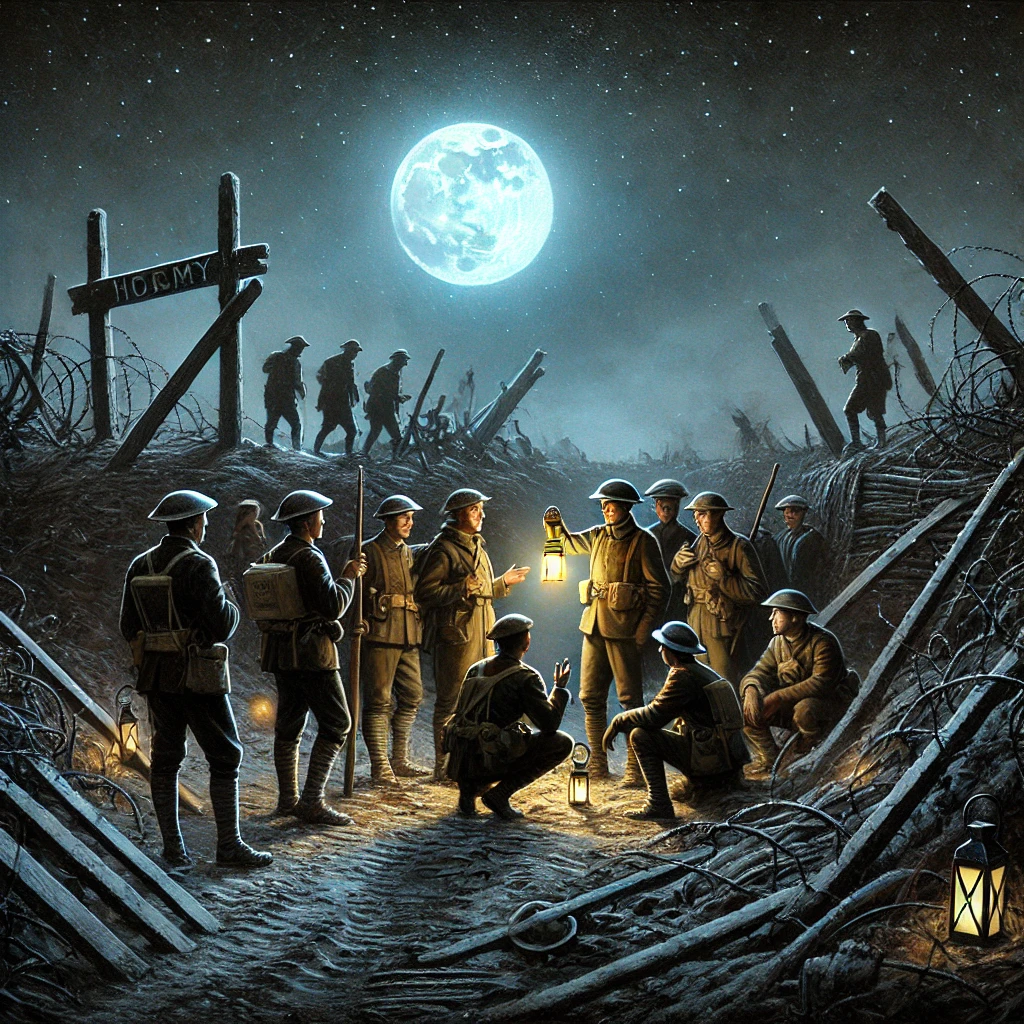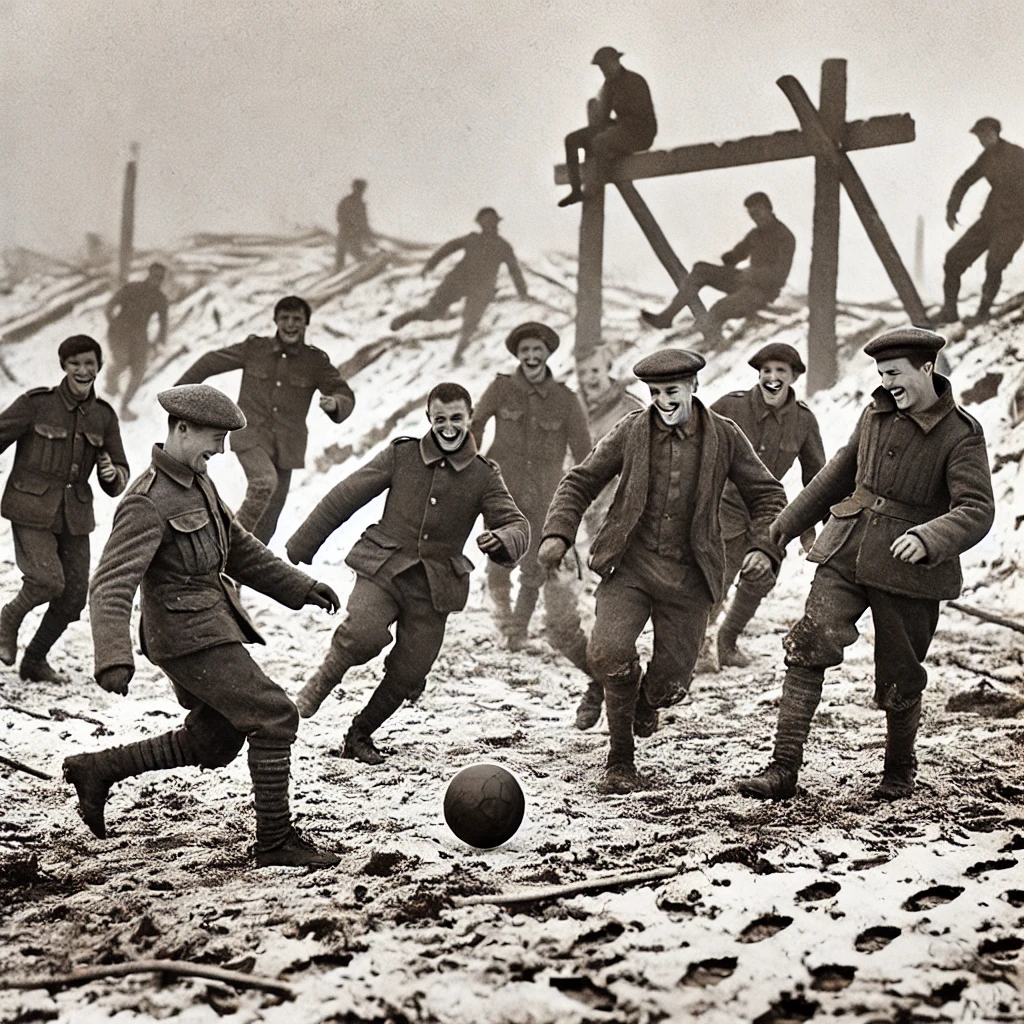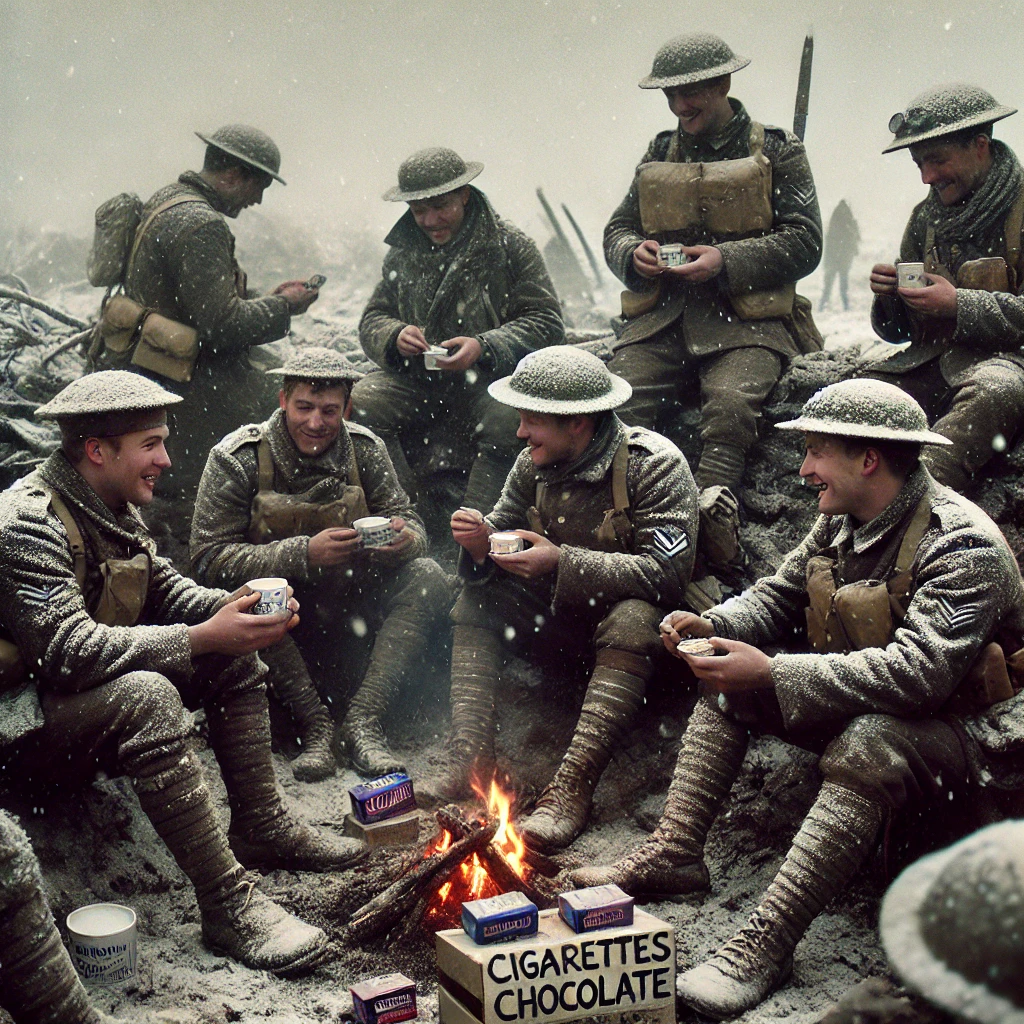On Christmas Eve 1914, amidst the horrors of World War I, an extraordinary moment of humanity unfolded as German and British soldiers laid down their arms and emerged from their trenches to celebrate Christmas together in No Man’s Land, sharing carols, cigarettes, and even a game of soccer. This spontaneous ceasefire has since become one of the most poignant and powerful events in modern history, reminding us of the shared humanity that transcends even the most bitter conflicts.

An Unlikely Peace in the Trenches
World War I had been raging for months, with soldiers entrenched along the Western Front enduring brutal conditions. The Christmas season brought no official ceasefire, but something remarkable occurred on December 24, 1914. German troops began singing Christmas carols, their voices carrying across No Man’s Land. British soldiers soon responded with their own songs, and as the night progressed, soldiers from both sides cautiously ventured out of their trenches. Against all odds, enemies shook hands, exchanged gifts of cigarettes, chocolate, and small mementos, and even joined together in the joy of the season.
The most famous anecdote from the Christmas Truce involves an impromptu soccer match. Soldiers who, just days before, had been firing at one another, now passed a ball back and forth on the frozen ground. While reports of the match remain mixed and largely symbolic, the sentiment is clear: for a brief time, the war gave way to camaraderie and understanding.

The Significance of the Christmas Truce
The Christmas Truce was significant not because it changed the outcome of the war—it didn’t—but because it showed the world that even in the darkest moments, compassion and peace can prevail. Soldiers on both sides were young men far from home, and for that fleeting day, their shared humanity outweighed their orders to fight. It was an organic, grassroots movement of peace, one that neither commanders nor politicians had foreseen or sanctioned.
The event served as a quiet protest against the dehumanizing nature of war. Although many officers discouraged similar behavior in subsequent years, the truce remains a powerful symbol of hope and humanity amidst senseless violence.
Lasting Impact and Legacy

The Christmas Truce continues to resonate more than a century later as a testament to the power of empathy and connection. It has been immortalized in books, films, and songs, with the soccer match becoming a particularly enduring image. Each year, commemorations and reenactments honor the soldiers who participated, keeping alive the message that peace is always possible, even in the most unlikely circumstances.
In a modern world still marked by conflict, the Christmas Truce reminds us of our capacity for compassion. It challenges us to consider how small acts of kindness can foster understanding and bridge divides. The soldiers who emerged from their trenches in 1914 left us a legacy of hope—a message that continues to inspire generations to seek peace over violence.
Ultimately, the Christmas Truce serves as a powerful reminder that even amidst the most brutal wars, humanity endures. It stands as a symbol of what is possible when we choose connection over conflict, even if only for a single day.
